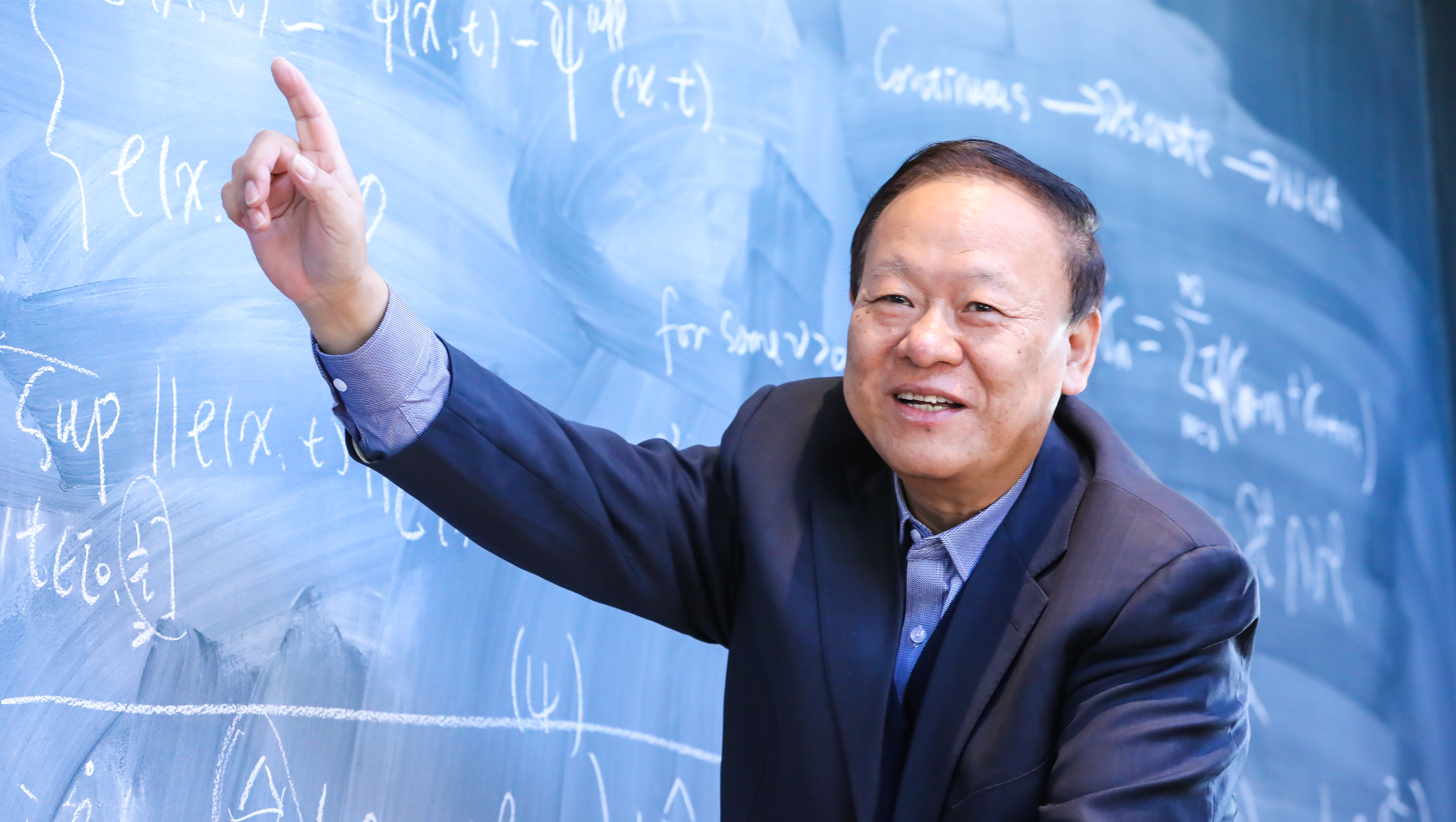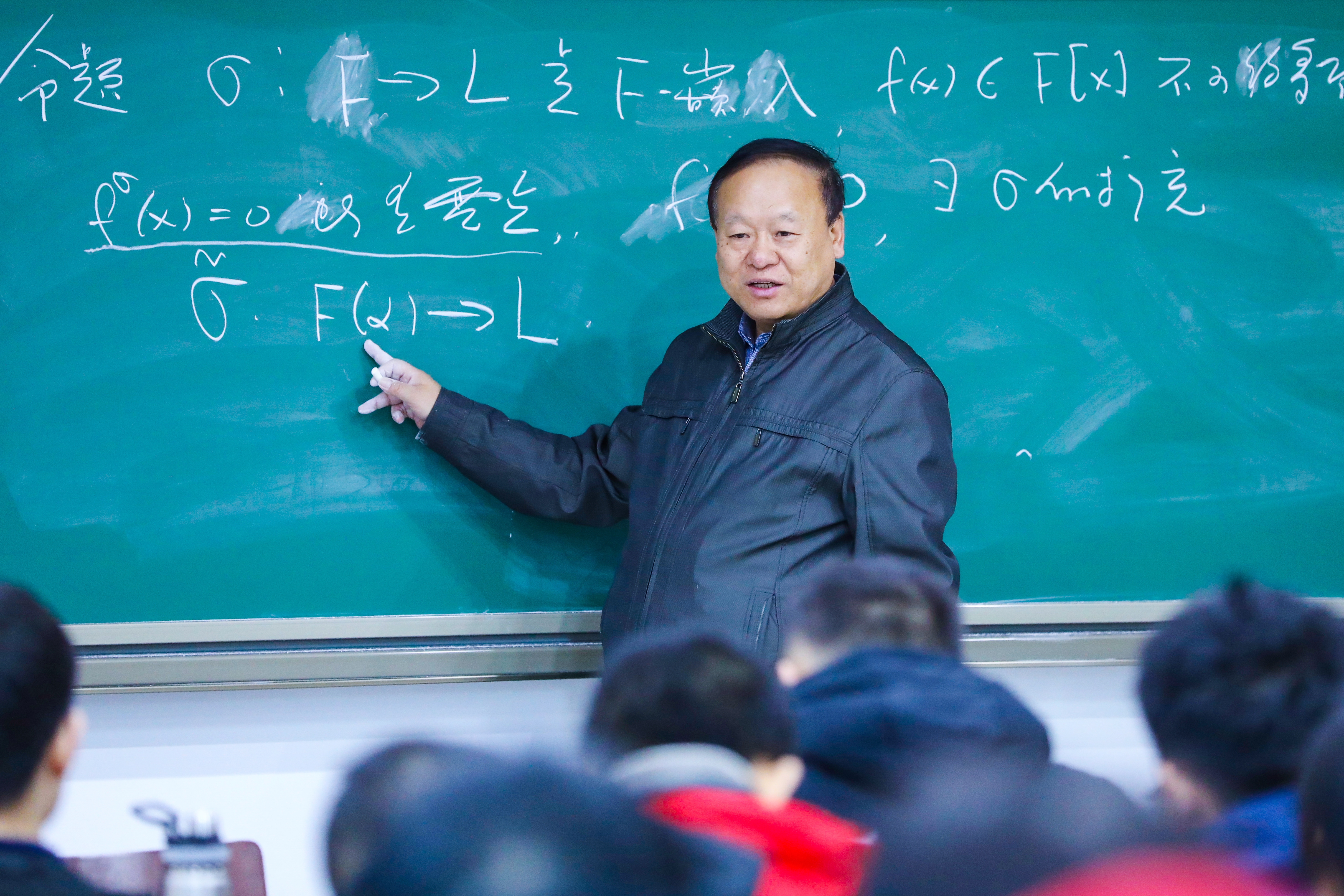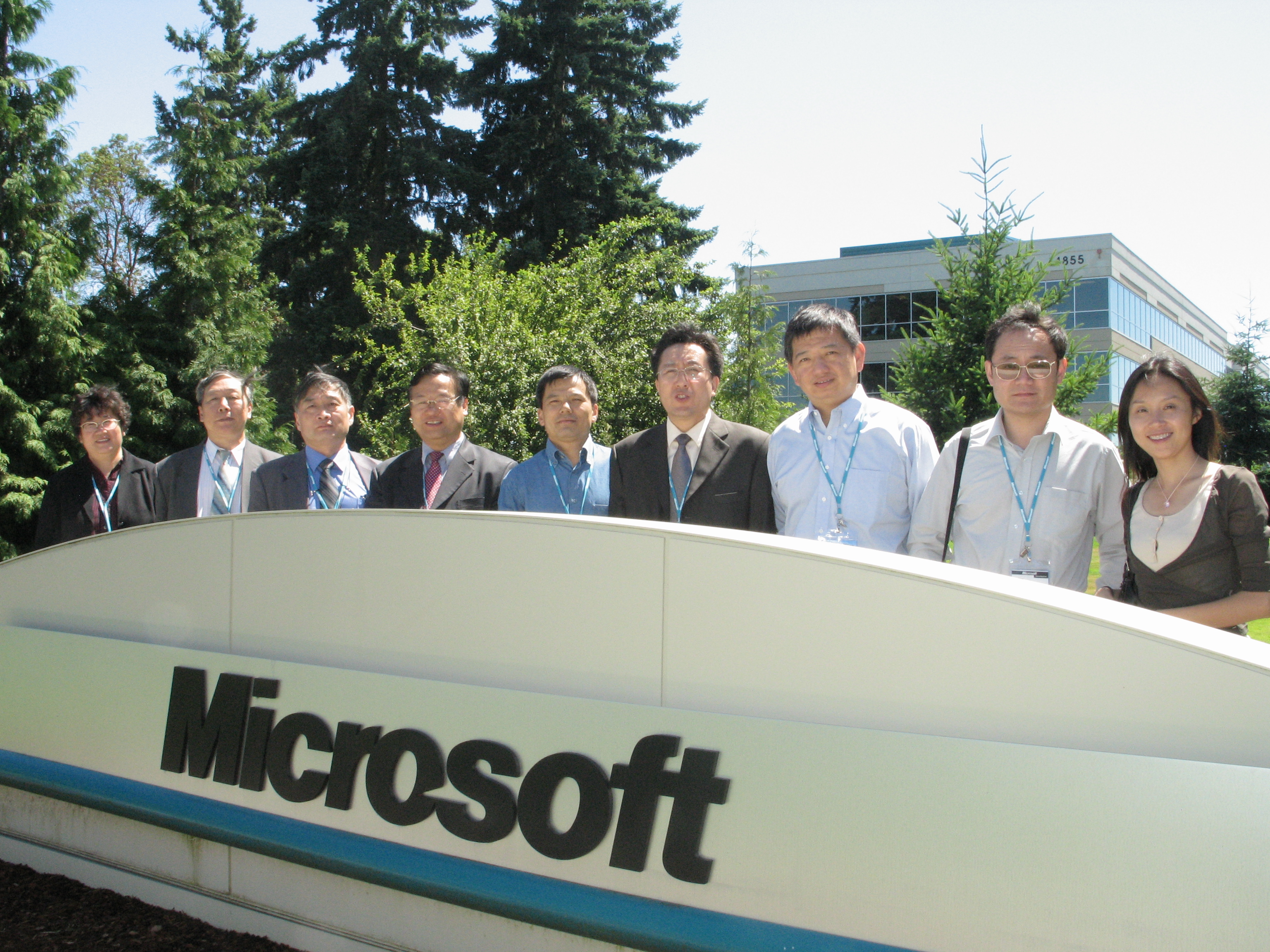Editor's Note: In November 2019, a total of seven academics from Peking University were elected as academicians, with five becoming members of the Chinese Academy of Sciences (CAS) and two being members of the Chinese Academy of Engineering (CAE). This article is the third installment in a five-part series featuring the academic career and research achievements of these newly elected academicians.
Peking University, Jan. 3, 2020: From one of the youngest doctoral advisors at Peking University, to the newest academicians, Professor Zhang Jiping has come a long way. On November 22, 2019, the newly elected members of the Chinese Academy of Sciences (CAS) were announced, and Zhang Jiping’s name was on the list.
Zhang Jiping is a world-renowned mathematician, dean of the School of Mathematical Sciences at Peking University and the deputy director of the Beijing International Center for Mathematical Research. With a thirst for acquiring knowledge and a passion for exploring mathematics, Zhang has gained outstanding achievements in his research on Modular Representation Theory of finite groups in the contemporary age, and has served as chairman for many international conferences.
 Zhang Jiping
Zhang Jiping
After being elected as a member of the Chinese Academy of Sciences, Zhang said that his plan is to continuously produce achievements and train talents, saying, “in this regard, we should hold the responsibility for nurturing talents ".
Immersed in the world of math
In 1977, Zhang participated in the national college entrance examinations and was admitted to the School of Mathematics of Shandong University. He then completed his graduate and doctoral studies at the School of Mathematical Sciences at Peking University under the supervision of Professor Hsio-fu Tuan, a member of the Chinese Academy of Sciences.
Choosing math was initially a coincidence for Zhang. From an early age, influenced by his grandpa, Zhang was fond of reading classical literature. Even though his math was also highly scored, he didn’t immediately select it as a college major. However, once at university, in his own words, Zhang found himself "falling in love with mathematics”.
Immersed in the world of math, Zhang soon reaped the rewards for his diligence. His doctoral dissertation, "A condition for the existence of p-blocks of defect 0" and his solution to the Brauer’s problem 39 drew widespread attention from the international mathematical community.
In 1989, as a postdoc, Zhang followed the work of John G. Thompson, an American mathematician who was awarded the Fields Medal in 1970 for his work in group theory. Thompson defined the subgroup Z (J (P)) in his early work, which coincidently was exactly the same abbreviation as that of Zhang’s name. With the encouragement of Thompson, Zhang started working on new p-nilpotency criterion, which Thompson proved in terms of subgroup Z (J (P)), this took him Zhang nearly 20 years to complete.
Reminiscing, Zhang said, "not every day, but I was at least thinking about this problem several times every week. You think hard for years and years, then make some breakthroughs. This may sound boring to others, but for those who like this it is very enjoyable”. It wasn’t until 2006, on a flight to Germany, Zhang suddenly had one of these breakthroughs and went on to achieve his solution in the next two years in collaboration with Professor Benssenrodt.
The science of symmetry has attracted Zhang for decades with its unique beauty. Since beginning his study of finite groups and their modular representation theory, Zhang hasn't stopped working.
After 1989, Zhang went on to France, Germany, and America for academic visiting. He worked feverishly, lost all track of time, and entered a prosperous period in his research career. He was so consumed in his work, during his year in Paris he reminisces, he never even made it to visit the Eiffel Tower, even though he could see it from his office; "I had so much time to enjoy the beautiful night and romance of Paris, but I didn’t. At that time, having such good scientific conditions, we all spurred together and moved forward hoping we could work out some achievement”.
More than a mathematician
Studying and working at Peking University for nearly 40 years, Zhang says he "is full of affection for Peking University,” and has gained much life experience as more than just a mathematician. After entering Peking University as a graduate student, he sat under Professor Hsio-Fu Tuan (Duan Xuefu), the pioneer of research in China on the theory of finite group and representations. Recalling professor Tuan’s guidance, Zhang emphasized the influence of Tuan’s noble personality.
 Hsio-Fu Tuan
Hsio-Fu Tuan
Two experiences from his time as a graduate student have become deeply imprinted in Zhang’s mind. The first was when Professor Tuan, as head of the School of Mathematical Sciences in the 1950s, wrote a roster of all the people in the department. "I was shocked at the time. It was like carved out, completely an art” Zhang recalled. The second memory was when Zhang went to Professor Tuan to discuss a problem. After waiting for a while, Professor Tuan said that he was really sorry that after talking with a few students he had to rest for a while as he had cancer; “he said it so easily like cancer was not a big deal”. Zhang said Tuan's spirit of optimism influenced his life and work for decades afterwards.
After studying abroad for several years, Zhang chose to return to China in 1994. Zhang has been asked many times in interviews why he felt he must return to China. For Zhang it was simple. Going abroad to study and do scientific research as a guest was something to be invited. However, in Zhang's words, “studying mathematics overseas is great but you will miss the life back in China. Even though Mathematics is free, people do not live solely on mathematics”.
Returning to Peking University, Zhang became dean of the Department of Mathematics at Peking University in 1998. From a mathematician to a dean of a school, Zhang likened his experience to being back as a student on daily duty. He felt that since everyone trusts you in a position of power, he must take it seriously. After taking office, his efforts have strengthened teaching and talent cultivation at the school.
Since 1999, Zhang started to organize a large number of seminars for freshmen and sophomores. He and other colleagues participated in these seminars, and let the students gather materials for discussion amongst themselves. Zhang says, “one of the advantages is to fully understand all the processes of our undergraduate’s study, and be always aware of their needs and requirements”. Besides this, Zhang also promoted several actions like encouraging the reform of talent training models, inviting famous scholars from abroad to give lectures, and organizing cross-discussion groups. These changes strengthened the academic atmosphere of the School and gave students access to discuss many frontiers of mathematics.
 Zhang in the classroom
Zhang in the classroom
In June of this year, together with one of his students, Yun Zhiwei, Zhang participated in an international conference hosted by the American Mathematical Society. As one of 400 attendees, Zhang said that he was so proud of Yun’s performance, Zhang said, “the depth and ingenuity of Yun Zhiwei’s talk about mathematical thoughts was convincing, just like holding all mountains in a single glance”.
Cooperation in Mathematics
With all of Zhang's experiences in mathematics across different countries, he believes that although the development of mathematics has been affected by nations’ individual cultures, mathematics in any country should aim to transcend the characteristics of its own culture.
Zhang at Microsoft (fourth from left)
In his own words, “mathematics is unified, and math is the world. Modern mathematics is becoming more and more integrated and unified. The solution of any important mathematical problem will not be limited to one field. It requires joint efforts and cooperation. Chinese students and young mathematicians should pay more attention to this”.
This is also the reason why Zhang and Professor Tian Gang dedicated to the establishment of the Beijing International Center for Mathematical Research after 2002. Zhang said, “It is so called because I hope that the Mathematical Center will be at the forefront of mathematics research at Peking University. It will be at the forefront of China's mathematics communication with the world. We must produce first-class research outcomes, and cultivate first-class young talents”.
"The development of mathematics in China these years is still very fast. The pace of catching up with the world is getting faster and faster, and some of the world's leading mathematicians have appeared from China. It will take some time to fully realize the dream of a strong country in mathematics, but it is very promising”, Zhang said with confidence.
Written by: Yang Yanfan
Edited by: Ciara Morris
Photo credit to: Wang Tiantian



